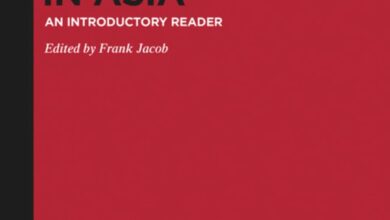PAKISTAN – Toward a Revolution – Monday 17 January 1972 – Time Magazine
PAKISTAN – Toward a Revolution
Monday 17 January 1972
Time Magazine
MuktiJuddho e-Archive Collection
On the same day that he released Sheik Mujibur Rahman and saw him off to London, Pakistan President Zulfikar Ali Bhutto—in a supreme irony —ordered the house arrest of his predecessor, Agha Mohammed Yahya Khan, the man who imprisoned Mujib in the first place.
Both actions produced headlines round the world. But in Pakistan they were almost overshadowed by what Bhutto grandly called “the first steps toward an economic and social revolution.” These first steps were large ones. After seizing the passports of members of the country’s wealthy ruling “22 families”—who, by prewar estimate, controlled more than two-thirds of Pakistan’s industrial assets—Bhutto ordered them to repatriate the $220 million that, he said, they had stashed away abroad. Bhutto also threatened a crackdown on Pakistan’s oligarchy by ordering the house arrest of two of his country’s richest men. “Pakistan is one of the poorest countries in the world,” Bhutto has said, “and yet some of our capitalists are among the world’s richest men.”
No Competition. In addition, Bhutto nationalized ten of his country’s basic industries, including iron and steel, heavy engineering, automobile assembling, chemicals, cement and public utilities. “There was no competition in these industries,” he declared. “They were fed on licenses. Favorites of the government and those who were privileged—these were the ones who got licenses.” He insisted, however, that the government would not take over foreign investments, nor seize other industries, provided they were guiltless of financial irregularities.
To heighten the contrast between himself and his sluggish, dissolute predecessor, Bhutto kept to an exhausting 18-hour-a-day schedule. The whirlwind of activity was designed not only to solidify his one-man rule over Pakistan, but also to restore the shattered confidence of his countrymen. He has purged the bureaucracy as well as the armed forces, firing, among others, the attorney general, the chief of intelligence and the governor of the state bank. He has outlined plans for land reform, free primary education and an improved public health program.
Bhutto has lectured the long-captive Pakistani press against blaming the country’s problems on other nations. Hosting a buffet luncheon for foreign correspondents on the lawn of his family home at Larkana, where he had gone to celebrate his 44th birthday, Bhutto promised to make an announcement soon about “the first phase of our movement toward democracy,” adding: “Believe me, I mean it. If I am pulling a fast one, you’ll soon realize that.”
Meanwhile, though, Pakistan remained under martial law.
Bhutto also announced last week that he would visit China, Pakistan’s principal ally in Asia, at the end of the month. In earlier years, particularly from 1963 to 1966 when he was Pakistan’s Foreign Minister, Bhutto was noted for his pro-Chinese and anti-American views. Since he became President last month, however, he has gone to some pains to emphasize that he wants to have friendly relations with the U.S.—in recognition, no doubt, of Washington’s support of Pakistan during the war.
In New Delhi, anger over the Nixon Administration’s open support of Pakistan’s cause still runs very deep. Last week, in reaction to U.S. policy and the cancellation of most U.S. economic aid (which amounted to $159 million last year), the Indian government announced that it was granting full diplomatic recognition to North Viet Nam—while retaining only consular-level relations with Saigon. Until now, New Delhi had maintained a formal neutrality on the Viet Nam issue because it was chairman of the International Control Commission, which was charged with supervising a ceasefire in Viet Nam under the Geneva accord of 1954. India pointedly refrained from advising Washington of its decision in advance. The U.S., in turn, protested to India that its action could jeopardize its chairmanship of the commission. For the moment, both governments were clearly too angry to be interested in repairing the breach.

